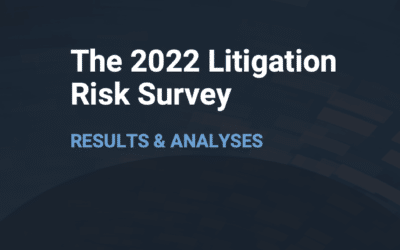On June 1, 2021, the 11th Circuit stymied a certified class’s effort to force an insurance company to cover its insured’s TCPA settlement. Horn v. Liberty Ins. Underwriters, Inc., 998 F.3d 1289 (11th Cir. 2021). The court agreed with the district court’s ruling that TCPA claims were excluded from coverage by the policy’s exclusion for “[c]laims … arising out of … an invasion of privacy.”
The underlying class action lawsuit
In 2017, Jacob Horn filed a TCPA class action against iCan Benefit Group, LLC for sending unauthorized text messages. The complaint alleged that iCan:
- “invaded the personal privacy of Plaintiff and members of the putative Classes…[and] intentionally and repeatedly violated the TCPA;” and
- “caused consumers actual harm in the form of annoyance, nuisance, and invasion of privacy.”
The class action settlement
After the lawsuit was filed, iCan tendered the defense and indemnity of the lawsuit to its carrier, Liberty Insurance Underwriters. Relying on the “invasion of privacy” exclusion, Liberty denied coverage. Eventually, plaintiffs and iCan “settled” the case for approximately $60 million, but with an important caveat. Because iCan could not afford the settlement, iCan agreed to assign its rights under the Liberty policy to the class, while the class agreed not to seek payment from iCan.
The liability coverage and exclusion
The dispute focuses on the following exclusion language:
The Insurer shall not be liable under Insuring Clause C for Loss on account of any Claim made against the Company: … (4) based upon, arising out of, or attributable to any actual or alleged defamation, invasion of privacy, wrongful entry and eviction, false arrest or imprisonment, malicious prosecution, abuse of process, assault, battery or loss of consortium.
(Italics added.)
The Eleventh Circuit’s decision
The class plaintiffs sued Liberty, seeking a declaratory judgment that Liberty was obligated to pay the class the $2 million in policy limits. The district court disagreed, granted summary judgment in favor of Liberty. The class appealed.
In a 2-1 decision, the Eleventh Circuit affirmed, holding that the TCPA claims at issue were “arising out of … an invasion of privacy” and therefore excluded by the policy. The court found that the phrase “arising out of” was critical to its decision, noting its broad definition as “originating from,” “having its origin in,” “growing out of,” “flowing from,” “incident to” or “having a connection with.” Accordingly, the majority found that the complaint, which alleged TCPA violations and explicitly mentioned the invasion of plaintiffs’ privacy, arose out of an invasion of privacy.
In so holding, the court rejected the dissent’s argument that the exclusion should be read to apply to only claims alleging the common law tort of “invasion of privacy.” The court was not persuaded by the fact that “invasion of privacy” was cabined in the policy by eight other specific torts. According to the majority, “[t]he insurance policy does not cabin the invasion of privacy exclusion to claims alleging those listed tort causes of action, rather it broadly excludes ‘civil proceedings’ ‘arising out of’ an ‘invasion of privacy.’” Thus, the Eleventh Circuit concluded the class action falls under the policy’s invasion of privacy exclusion because the class action has at least “a connection with” an “invasion of privacy.”
Not a per se ruling
In 2017, the Ninth Circuit decided Los Angeles Lakers, Inc. v. Fed. Ins. Co., 869 F.3d 795, 799 (9th Cir. 2017), which held that allegations that a defendant violated the TCPA are per se claims for invasion of privacy and thus subject to insurers’ exclusions for “[c]laims … arising out of … an invasion of privacy.” The Ninth Circuit summarized its ruling as follows:
When Congress passed the Telephone Consumer Protection Act (“TCPA”) it sought to protect individuals against invasions of privacy, in the form of unwanted calls (and now text messages) using automatic telephone dialing systems. Congress explicitly stated this purpose in the text of the TCPA. In light of this plainly stated purpose, and the lack of any other indicia of congressional intent in the statute, a TCPA claim is, by its nature, an invasion of privacy claim. Accordingly, a liability insurance policy that unequivocally and broadly excludes coverage for invasion of privacy claims also excludes coverage for TCPA claims.
The Horn court refused to go this far, stating that while the Ninth Circuit was correct in Lakers to note the connections between the TCPA and invasions of privacy, because of the “broad qualifying language in iCan’s insurance policy,” “we need not address” whether “every TCPA claim is by its nature an invasion of privacy claim.”
***
For defendants sued in courts in the 11th Circuit, Horn is yet another reminder of the challenges they face in seeking coverage from existing insurance policies. But not all hope is lost.
Risk Settlements, the industry leader in structuring class action settlements, can help defendants in class action litigation evaluate the litigation options and design an optimal settlement structure that is backed by full risk transfer to an insurer. Risk Settlements offers two insurance solutions for defendants in class action litigation.
Class Action Settlement Insurance (CASI) provides companies with the certainty they need to get back to business. It is the only product on the market that allows companies to mitigate, cap and transfer the financial risk of settlement in existing class action litigation. Designed by Risk Settlements in response to businesses’ need for financial certainty in class action lawsuits and resulting settlements, CASI eliminates the unintended consequences of settlement and helps businesses exit litigation for a known, fixed cost.
Litigation Buyout (LBO) Insurance provides companies with the ability to successfully ring-fence litigation exposure and transfer the full financial risk of class action, antitrust, and non-class litigation. With LBO Insurance, the insurance carrier takes on the financial risks and liabilities for businesses – at any time before settlement and for a known, fixed cost. In the context of an M&A transaction or financing, LBO Insurance negates the requirement for the use of escrows or indemnities, providing certainty and finality to both parties to the transaction.
Contact us today to learn more about our creative insurance solutions to resolve existing or ring-fence threatened or existing litigation for a known, fixed cost.







